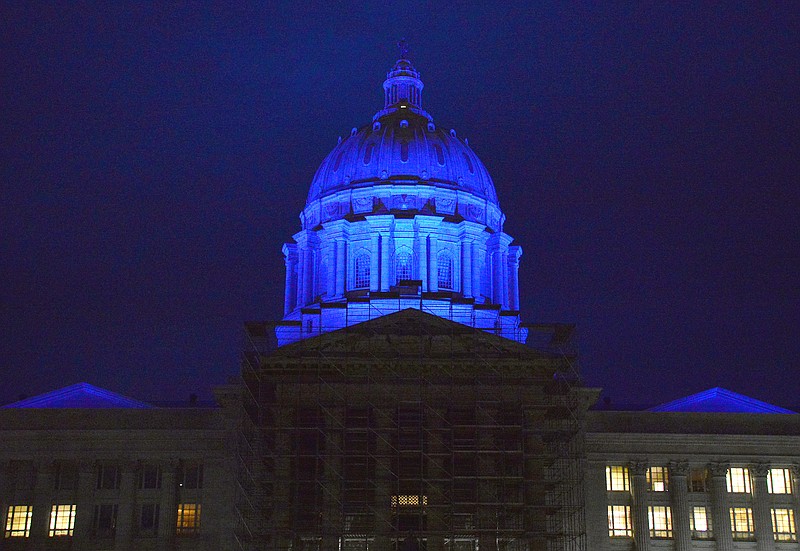A House committee heard a bill Wednesday that would create a system to automatically register eligible people to vote, allowing them to opt out rather than opt in to being a registered voter.
State Rep. Ashley Bland-Manlove, D-Kansas City, proposed a bill that would automatically register eligible Missourians to vote based on driver's license information and probation and parole information. The House Elections and Elected Officials Committee heard the bill Wednesday.
Under Bland-Manlove's proposal, the Department of Revenue would send a list of eligible voters compiled through license information to the Secretary of State's office, and on to local election authorities. The Board of Probation and Parole would send that information for people who are being released from incarceration, probation or parole and are eligible to vote again.
Bland-Manlove said the idea came from talking to constituents about why they did or didn't vote. Those who didn't vote tended to feel disenfranchised, like their vote didn't count. Others were convicted felons who didn't know they could vote after finishing their sentences, Bland-Manlove said. They're supposed to be notified that their voting rights have been restored, but they aren't automatically put back on the voting roll.
Under Bland-Manlove's plan, the local clerks and election boards would send paid postcards to those on the list so they could opt out of being registered to vote. Anyone who didn't send a card back would automatically be registered.
The "opt-out" system gives everyone the opportunity to not register, so it doesn't violate their First Amendment rights, Bland-Manlove said. Some opponents of automatic voter registration argue it takes away an individual's right to not register to vote.
Bland-Manlove said her bill would improve protections of the right to vote. It wouldn't necessarily increase voter turnout, but it would ensure more people were given the opportunity to register, she said.
Monica Del Villar, of ACLU Missouri, said the bill would increase registration and make more people able to participate in the democratic process. It would also streamline data collection for the state's voter roll, she said.
Ron Barry, a lobbyist representing the AARP, said the system would be convenient and would clear up confusion for people who want to register. There is still a process in place to make sure each person is actually eligible to vote, including cross checks with the Department of Revenue and Social Security, he said.
State Rep. Peggy McGaugh, R-Carrollton, who worked 32 years in the Carroll County Clerk's Office, including 16 as clerk, compared the idea to the Help America Vote Act, which placed voter registration forms in department of motor vehicles offices across the country. The plan worked as intended, as the convenience led more people to register, but not everybody, she said.
"Like the saying, 'You can lead a horse to water but can't make it drink,' there were people that would say, 'I'm not interested,'" McGaugh said.
People who got the postcards would be the same people who declined to register at the license office, McGaugh said.
"We just want to make sure that everybody's being covered now," Bland-Manlove said.
McGaugh also worried about costs being pushed onto local election authorities. Local election authorities would be reimbursed by the secretary of state's office, but they would be the ones who print the postcards. Several counties told legislative research they would have to spend a few thousand dollars more to do that, some said it wouldn't cost them anything.
The program would require an initial $1 million upgrade to the state's voter registration database, half of which would come from a fund that's already appropriated from the state's general revenue, according to legislative research.
The report estimated it would cost the secretary of state's office approximately $700,000 to print and mail the post cards to the estimated 743,280 people who have drivers' licenses but aren't registered to vote, and it would be higher when including the Department of Corrections.
Seventeen states have automatic voter registration, mainly through their motor vehicle departments, according to the National Conference on State Legislatures.

